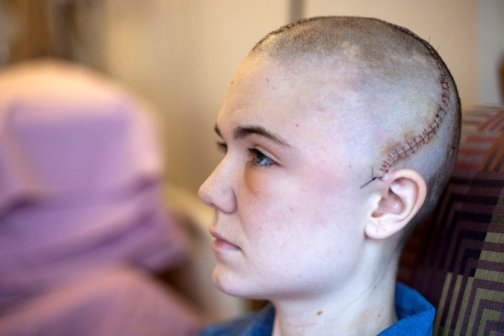The man in the hospital bed was playing video games on a laptop, absorbed and relaxed despite the bustle of scientists on all sides and the electrodes threaded through his skull and deep into his brain.
“O.K., that’s enough,” he told doctors after more than an hour. “All those memory tests, it’s exhausting.”
The man, Ralph, a health care worker who asked that his last name be omitted for privacy, has severe epilepsy; and the operation to find the source of his seizures had provided researchers an exquisite opportunity to study the biology of memory.
The Department of Defense on Tuesday announced a $40 million investment in what has become the fastest-moving branch of neuroscience: direct brain recording. Two centers, one at the University of Pennsylvania and the other at the University of California, Los Angeles, won contracts to develop brain implants for memory deficits.



